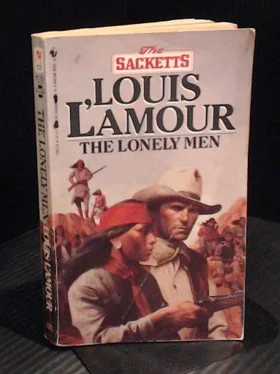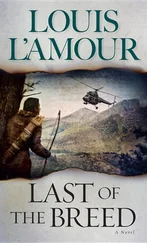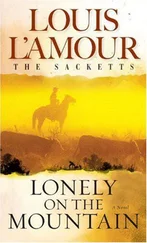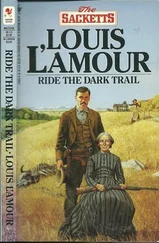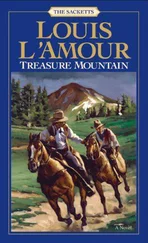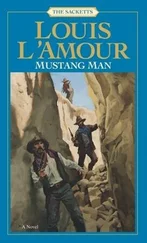Louis L'Amour - The Lonely Men
Здесь есть возможность читать онлайн «Louis L'Amour - The Lonely Men» весь текст электронной книги совершенно бесплатно (целиком полную версию без сокращений). В некоторых случаях можно слушать аудио, скачать через торрент в формате fb2 и присутствует краткое содержание. Жанр: Старинная литература, на английском языке. Описание произведения, (предисловие) а так же отзывы посетителей доступны на портале библиотеки ЛибКат.
- Название:The Lonely Men
- Автор:
- Жанр:
- Год:неизвестен
- ISBN:нет данных
- Рейтинг книги:4 / 5. Голосов: 1
-
Избранное:Добавить в избранное
- Отзывы:
-
Ваша оценка:
- 80
- 1
- 2
- 3
- 4
- 5
The Lonely Men: краткое содержание, описание и аннотация
Предлагаем к чтению аннотацию, описание, краткое содержание или предисловие (зависит от того, что написал сам автор книги «The Lonely Men»). Если вы не нашли необходимую информацию о книге — напишите в комментариях, мы постараемся отыскать её.
The Lonely Men — читать онлайн бесплатно полную книгу (весь текст) целиком
Ниже представлен текст книги, разбитый по страницам. Система сохранения места последней прочитанной страницы, позволяет с удобством читать онлайн бесплатно книгу «The Lonely Men», без необходимости каждый раз заново искать на чём Вы остановились. Поставьте закладку, и сможете в любой момент перейти на страницу, на которой закончили чтение.
Интервал:
Закладка:
"Almost none. A few times exchanges have been arranged. In a few cases individuals have traded goods or horses for a prisoner, but if the Apaches are pursued, they usually kill their prisoners."
Laura Pritts Sackett was thoughtful, and at the next stage stop she wrote her note to William Tell Sackett. Unless she was completely mistaken, he would come to Tucson at once, and unless she was equally mistaken, he would start at once for the Sierra Madres. The rest would be up to the Apaches.
What the Apaches failed to do, if they failed, might be done by other means ... for which the Apaches would receive due credit.
Skillfully, she drew out the young lieutenant, and his comments were added to from time to time by one or another of the coach passengers. By the time the stage arrived in Tucson, Laura was well posted on the activities of the Apaches in Arizona Territory, as well as on the many times they had killed or kidnapped children, from the Oatman Massacre to the moment of her stage trip.
"Supposing one man or several men -- not soldiers -- were to try to go into the Sierra Madres?" she asked Lieutenant Davis.
"They would never return alive." The lieutenant was positive. "They wouldn't have a chance."
One of the passengers, a bleak, hard-faced man in rough frontier garb, looked around at him briefly. "Depend on the man," he said after a moment, but if he was heard his comment was not acknowledged.
That night, seated before her mirror, Laura Sackett knew she had found what she wanted. To trap his beloved brother would be just as satisfying as to trap Orrin himself, or Tyrel, whom she blamed even more.
She wished only for one thing: to see their faces when they realized how their brother had been duped.
When that man at the stage station in Yuma told me there was a letter for me I thought he was surely mistaken. Why, I couldn't recall getting more than three or four letters in my whole life, and nobody knew I was in Yuma -- nobody at all.
None of us folks had been much hand to write. Orrin and Tyrel had learned to write, but with me writing was an almighty slow affair, and not one to be undertaken lightly. And we were never much on just exchanging letters unless there was something all-fired important. But sure enough, this letter was for me, William Tell Sackett. It read:
Dear Tell:
Our son, Orrin's and mine, has been taken by the Apaches. Orrin is in Washington, D. C. Tyrel is laid up.
Can you help me?
Laura Sackett So old Orrin had him a boy! Now, nobody had seen fit to tell me, but drifting place to place the way I'd been, it was no wonder. And no need for me to know, when it came to that.
None of the family knew where I was, but that need cut no ice now. When I'd needed help the whole lot of them had come a-running, and if the Apaches had Orrin's boy I'd have to move fast before they killed him ... if they hadn't already.
A body never knew what the Apaches would do. They might kill a child right off, or they might cotton to the youngster and raise him like one of their own sons, and with just as much affection and care. A lot depended on how old the boy was, on how he reacted, and on how fast the Apaches had to move.
The Apaches, I knew, had respect for the brave. They had no use for weakness or cowardice, and you'd get nothing but contempt by asking for mercy.
An Apache admired the virtues he himself needed in the life he led. Bravery, fortitude, endurance, and the skills of the hunter and the hunted -- these were important to him, these he understood.
Tucson lay still under a hot noonday sun when we dusted our hocks down the main drag, eyes open for a saloon or an eating house where there'd be shade, something to wet our whistles, and the trail gossip we were eager to hear.
We rode into town with care, for we were all men with enemies. We rode with our guns loose in the holsters, ready to run or fight, as the case might be, but the street was empty, heavy with heat.
The temperature was over a hundred in the shade.
"All this town needs," John J. Battles said, "is more water and a better class of people."
"That's all hell needs," Spanish replied. "Let's get into the shade."
We were hard and lonely men who rode a hard and lonely way. We had known nothing of each other until this ride began in Yuma, and even now we knew scarcely more.
But we had sweated and thirsted together, we had hungered and fought, and eaten trail dust together, so now we rode as brothers ride.
We were men with sorrows behind us, and battles too, men with regrets behind us of which we did not speak, nor too often think. With none to share our sorrows or regrets, we kept them to ourselves, and our faces were impassive. Men with no one to share their feelings learn to conceal those feelings. We often spoke lightly of things which we took very seriously indeed.
We were sentimental men, but that was our secret, for an enemy who knows your feelings is an enemy who has a hold on you. Not all poker is played over a card table.
Although we spoke so lightly of Tucson we all liked the town, and were glad to be there.
Me, I was nothing but a tall boy from the high-up Tennessee hills who tried to live the way he'd been taught. Ma hadn't much book learning, but she had straight-out ideas on what was fair and decent, and there was no nonsense about her and Pa when it came to dealing with enemies, or those who were evil.
Pa stood by the same principles Ma did, but Pa taught us other things too: how to stand up for what he believed was right, and to back down for no man when it came to fighting time. He taught us how to fight, how to find our way through rough country, and how to handle cards better than most gamblers, although he didn't hold with gambling.
"If you go among the Philistines," he used to say, "it is better to go armed."
So he taught us how to recognize a bottom deal, and to read marked cards, and how the sharpers operated. The four of us split up on the street in Tucson.
Rocca had some friends in the Mexican town, and Spanish Murphy went with him.
John J. Battles had plans of his own, and so had I.
With me there was no choice, and little time. I met an idea head-on, and this time I had to do whatever might be done for that boy of Orrin's. I'd get cleaned up, get a bite to eat, and then I'd find this Laura Sackett. I'd never met Orrin's wife, but any woman Orrin would cotton to would be all right with me.
I'd been away from the other boys and knew little of their affairs. Tyrel had married a girl of Spanish blood, and had done well. Orrin had run for office and been elected, and I did recall some talk of his marrying, but none of the details. Nor had I any idea why she was in Tucson, and him in Washington. Folks' affairs are their own business, and I never was one for asking questions. What folks wanted me to know they would tell me, and I had enough to keep me busy.
The Shoo-Fly Restaurant was a long, narrow room with a white muslin ceiling and a floor of rammed earth. There were a few windows, a dozen or so tables of pine boards, and some chairs and benches, none of which would set quite even on the floor, but the food was good, and it was a cool, quiet place after the desert.
When I ducked through the door and straightened up inside, it taken me a moment to get my eyes accustomed to the place.
Three Army officers sat at one table, two older men and their wives at another.
John Titus and a man named Bashford, both important men in the community, sat nearby. At a table in the corner near the window sat a blonde young woman, pale and pretty, her parasol beside her. When I came in she looked at me quick and puzzled, then glanced away.
Seemed like I was the roughest-dressed man in the place, and the biggest. My boots were down at heel, and my big California-style spurs rattled when I walked. My jeans were 'most wore out, and they carried a blood stain. I'd shaved, all right, but my hair was long and shaggy, and of course I was packing a six-shooter as well as a bowie knife, and carrying a Winchester.
Читать дальшеИнтервал:
Закладка:
Похожие книги на «The Lonely Men»
Представляем Вашему вниманию похожие книги на «The Lonely Men» списком для выбора. Мы отобрали схожую по названию и смыслу литературу в надежде предоставить читателям больше вариантов отыскать новые, интересные, ещё непрочитанные произведения.
Обсуждение, отзывы о книге «The Lonely Men» и просто собственные мнения читателей. Оставьте ваши комментарии, напишите, что Вы думаете о произведении, его смысле или главных героях. Укажите что конкретно понравилось, а что нет, и почему Вы так считаете.
